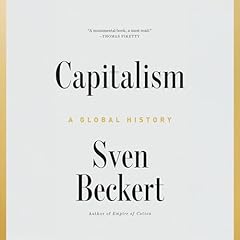
Religion and the Rise of Capitalism
No se pudo agregar al carrito
Solo puedes tener X títulos en el carrito para realizar el pago.
Add to Cart failed.
Por favor prueba de nuevo más tarde
Error al Agregar a Lista de Deseos.
Por favor prueba de nuevo más tarde
Error al eliminar de la lista de deseos.
Por favor prueba de nuevo más tarde
Error al añadir a tu biblioteca
Por favor intenta de nuevo
Error al seguir el podcast
Intenta nuevamente
Error al dejar de seguir el podcast
Intenta nuevamente
 Exclusivo para miembros Prime: ¿Nuevo en Audible? Obtén 2 audiolibros gratis con tu prueba.
Exclusivo para miembros Prime: ¿Nuevo en Audible? Obtén 2 audiolibros gratis con tu prueba.
Elige 1 audiolibro al mes de nuestra inigualable colección.
Acceso ilimitado a nuestro catálogo de más de 150,000 audiolibros y podcasts.
Accede a ofertas y descuentos exclusivos.
Premium Plus se renueva automáticamente por $14.95 al mes después de 30 días. Cancela en cualquier momento.
Compra ahora por $22.50
-
Narrado por:
-
Paul Bellantoni
"Friedman has given us an original and brilliant new perspective on the terrifying divisions of our own times. No book could be more important.” —George A. Akerlof, Nobel Laureate in Economics
Critics of contemporary economics complain that belief in free markets—among economists as well as many ordinary citizens—is a form of religion. And, it turns out, that in a deeper, more historically grounded sense there is something to that idea.
Contrary to the conventional historical view of economics as an entirely secular product of the Enlightenment, Benjamin M. Friedman demonstrates that religion exerted a powerful influence from the outset. Friedman makes clear how the foundational transition in thinking about what we now call economics, beginning in the eighteenth century, was decisively shaped by the hotly contended lines of religious thought within the English-speaking Protestant world. Beliefs about God-given human character, about the after-life, and about the purpose of our existence, were all under scrutiny in the world in which Adam Smith and his contemporaries lived.
Friedman explores how those debates go far in explaining the puzzling behavior of so many of our fellow citizens whose views about economic policies—and whose voting behavior—seems sharply at odds with what would be to their own economic benefit. Illuminating the origins of the relationship between religious thinking and economic thinking, together with its ongoing consequences, Friedman provides invaluable insights into our current economic policy debates and demonstrates ways to shape more functional policies for all citizens.
Los oyentes también disfrutaron:




















Las personas que vieron esto también vieron:




Sorta Conventional Wisdom
Se ha producido un error. Vuelve a intentarlo dentro de unos minutos.
interesting piece of work
Se ha producido un error. Vuelve a intentarlo dentro de unos minutos.
meh
Se ha producido un error. Vuelve a intentarlo dentro de unos minutos.
Excellent.
Se ha producido un error. Vuelve a intentarlo dentro de unos minutos.
Consider two other recent titles also written without intent to proselytize that explain Christianity's effect on shaping today. Joe Henrich's WEIRDest People in the World examines shared western psychology & the cultural evolution from cult of family to individualism stemming from religious prohibitions. Tom Holland's Dominion details the through-line from Enlightenment ideas to today's culturally shared Western values and societal structures.
All American's are Presbyterian naturalists
Se ha producido un error. Vuelve a intentarlo dentro de unos minutos.


